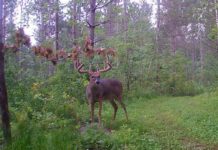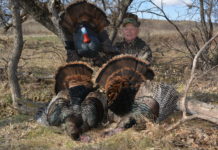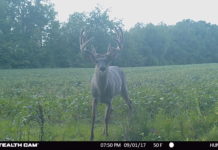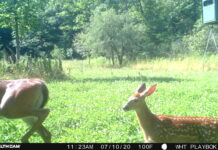As our society becomes more technologically advanced, hunting is much more of a want than a need. For many men and women, hunting is a passion. The more they deal with technology, social media, and today’s busy lifestyle, the more they cherish the opportunity to get closer to nature, a function provided by hunting.
Wendy LeFever does a great job, in this post from The Daily Caller, of talking up the many reasons for, and benefits of, hunting. Sure, the concept of putting food on the table is obvious, but LeFever delves into the subject in much greater detail.
“Why on earth would you ever want to go hunting?”
It’s a reasonable question. As a nation, we’re getting more and more removed from the wilderness and the animals that live in it, so for many people the concept of hunting is foreign—perhaps, even, a little shocking. Little wonder: If you’re like 80 percent of Americans, you live in a suburban or urban area. Because the population in this country has been trending from country to cities since the end of the 19th century, it’s quite likely that your parents and grandparents did, too. You’re able to go to the grocery store and buy everything your family needs to eat for a reasonable fraction of your pay. Getting a glimpse of a deer or a fox out the window of your car at 60 miles per hour is a rare treat. For good or ill, that’s simply the way that most of us live now—myself included. So it’s natural that you might wonder why anyone would want to go hunting, let alone why you would. As someone who came to hunting later in life, I’ve asked myself that question…and now I know: If we’re not born into the tradition, there are a lot of things that nobody ever tells us about hunting.
1. Hunting helps you develop valuable skills everyone should have.
We’ll start with the most simple and obvious point: Because most jurisdictions require that you take a hunter safety course in order to qualify for a hunting license,you’ll get a lot of formal training before you even step out into the field with a gun or bow in your hands. You’ll learn how to build an emergency shelter, how to start a fire, what kinds of survival tools you should have, how to signal distress, how to read a topographical map, and more. But the real education starts when you actually get outside. Hours spent silently scanning the woods for wildlife teaches patience, and helps you to be more observant of your surroundings—tools that are just as valuable at your neighborhood deli as in the wilderness. Still hunting (also known as “stalking”) teaches you to move quietly and gracefully, sharpening your balance. And who wouldn’t want to be more graceful, quiet and balanced?
Tell us what you think in the comments section below.



















![The Best Deer Camp Chili [VIDEO] Deer Chili Ingredients, Tomatoes, Chili Spices](/wp-content/uploads/2015/10/Deer-Chili-Deer-Camp-Recipe-218x150.jpg)
![How to Call Elk Early in the Season [VIDEO]](/wp-content/uploads/2016/08/byers003-218x150.jpg)





![Idiots Disturb Hunter: How Would You Have Handled It? [VIDEO]](/wp-content/uploads/2015/10/DSC00110-e1474487693878-100x70.jpg)
![Albino Buck Shocked to Shed His Antlers [VIDEO]](/wp-content/uploads/2015/10/AlbinoDeer-100x70.jpg)